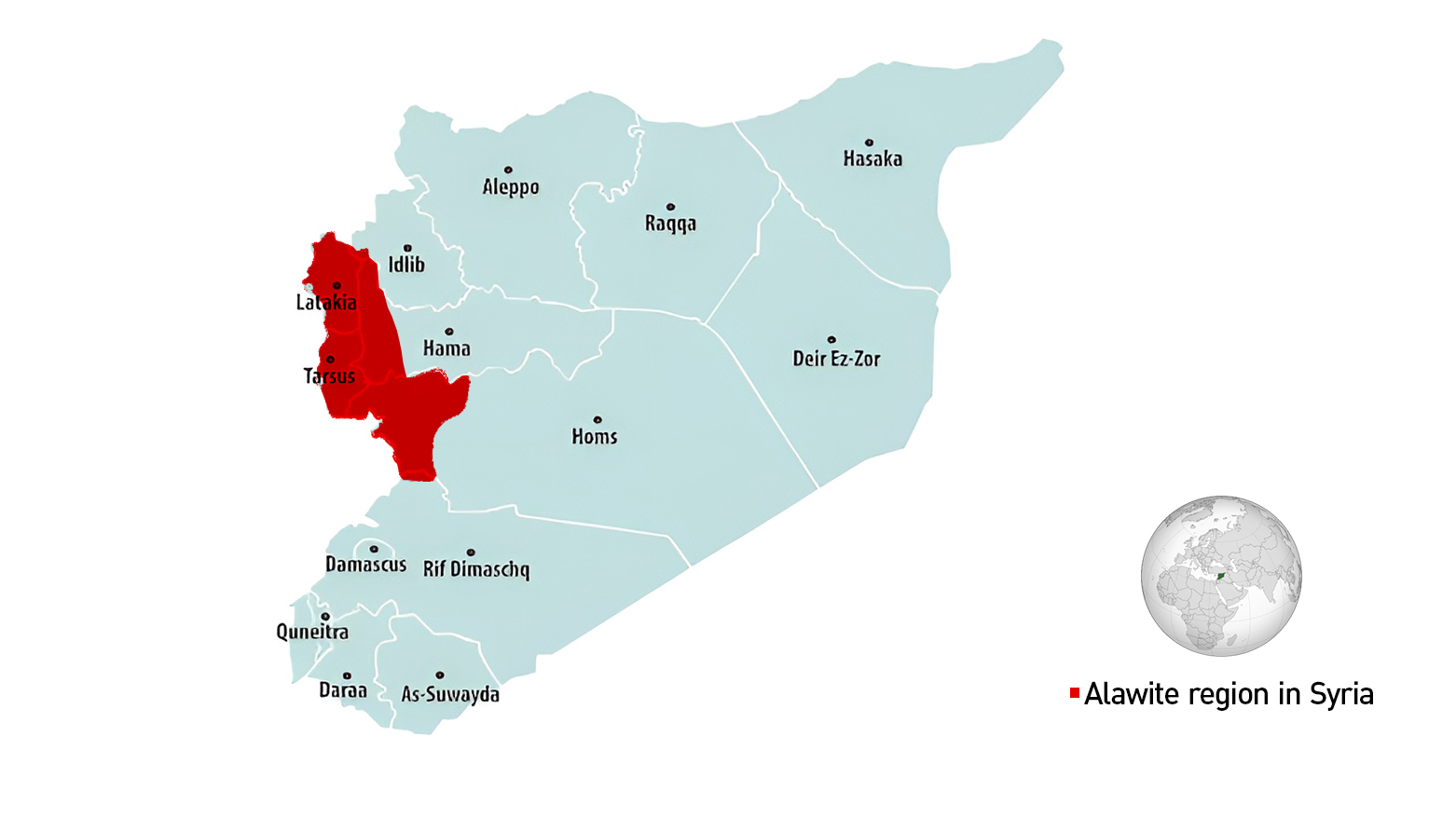Syrian Coastal Politicians Announce New Political Council Demanding Federalism
Syrian coastal politicians form "Political Council for Central and Western Syria," demanding federalism to replace centralized rule. The council, representing Tartous, Latakia, and parts of Homs/Hama, calls for secular governance and UN-backed transition.

ERBIL (Kurdistan24) – A group of Syrian politicians, activists, and journalists from the coastal region have announced the formation of the “Political Council for Central and Western Syria,” a newly established body representing the provinces of Tartous, Latakia, and parts of Homs and Hama—regions with an Alawite majority population.
The council, unveiled in a founding declaration on Wednesday, August 27, 2025, set out a political vision rooted in federal democracy as the framework for Syria’s future. It described federalism as the only effective solution to end the country’s enduring conflicts and to replace the failed model of centralized governance.
In its founding statement, the council emphasized that federalism guarantees lasting peace by making war “impossible,” noting that peace is not simply the absence of conflict but the establishment of mechanisms that prevent it altogether.
“Federalism is the replacement of force with law and the final solution to Syria’s internal disputes,” the spokesperson declared, stressing that devolving powers to federal regions would allow them to manage their own resources, secure autonomy in certain areas, and achieve justice between Syria’s diverse regions.
The statement added that the model aims to empower every citizen, ensuring equality, efficiency, and accountability at all levels of governance.
The “Central and Western Syria Federation” is envisioned as a civil, secular, and multi-ethnic entity that includes diverse minorities, religious groups, and communities. Its foundation rests on citizenship, justice, and international human rights law, while rejecting centralized domination and sectarian governance.
The council said it draws lessons from local experiences such as Sheikh Maqsoud and Ashrafiyeh neighborhoods in Aleppo, as well as from minority enclaves across Damascus, while stressing that despite its Alawite-majority origins, it seeks partnership with all Syrian components in subsequent steps.
Politically, the council branded the current ruling authority in Damascus as an “illegitimate and terrorist system” propped up by the “criminal Erdogan regime, the historical enemy of the region’s peoples.”
It reaffirmed commitment to UN Security Council Resolution 2254, calling for an 18-month transition that establishes a fully empowered transitional governing body, drafts a new democratic constitution, and oversees free general elections under international supervision.
The council further demanded the convening of a new national conference under UN auspices to address constitutional reforms and the shape of a federal system in a democratic and secular Syria.
The declaration outlined a detailed framework for transitional justice, including:
Referring cases of genocide, crimes against humanity, and war crimes to the International Criminal Court under Article 13B of its statute.
Calling for a special tribunal for Syria with international judges to investigate atrocities.
Urging the UN to arrest and prosecute individuals such as Abu Muhammad al-Julani, and Anas Khattab, affiliated with al-Nusra Front, in line with UNSC Resolution 1267.
The council also called for accountability mechanisms, truth and reconciliation programs, reparations for victims, rehabilitation, institutional reform, and guarantees against impunity.
The council’s civil vision included guarantees of freedom of thought, religion, conscience, and personal security, along with rights to private property, marriage, family life, education, and freedom from slavery and forced labor.
It also affirmed the right to free expression, press freedom, peaceful assembly, and participation in public life through fair elections, while rejecting demographic engineering and forced displacement.
The council pledged to work toward the release of forcibly disappeared civilians and military detainees, investigate the fate of missing persons, and restore dismissed employees to their posts with fair compensation.
Economically, the envisioned federal region would be based on economic freedom, social justice, and sustainable development while protecting the environment. The federal authority would regulate foreign trade while ensuring a fair distribution of wealth and resources.
The council also called for areas of Central and Western Syria that had suffered systematic destruction, massacres, and arson campaigns to be officially recognized as disaster zones eligible for urgent relief, donor conferences, and reconstruction support.
The council’s announcement comes against the backdrop of a deeply shaken Alawite community in Syria’s coastal provinces, which form the majority in Tartous, Latakia, and parts of Homs and Hama.
On Jul. 27, Amnesty International reported receiving credible accounts of the abduction of 36 Alawite women and girls since February, urging Syrian authorities to investigate and hold perpetrators accountable.
The report followed the March massacres in Syria’s Alawite heartland, where the Syrian Observatory for Human Rights documented around 1,700 civilians killed, mostly from the Alawite community.
Amnesty said it had documented eight specific cases of abduction, yet in nearly all instances, security forces failed to investigate properly, and in two cases even blamed the victims’ families. Only two abducted women have returned to their homes.
“The Alawite community, already devastated by previous massacres, has been deeply shaken by this wave of abductions. Women and girls are afraid to leave the house or walk alone,” Amnesty Secretary General Agnes Callamard said.
The UN Independent International Commission of Inquiry on Syria separately confirmed at least six cases of abductions of Alawite women and said it had received additional credible reports.
In conclusion, the Political Council for Central and Western Syria positioned federalism as the only democratic formula to preserve Syria’s unity while ensuring justice, stability, and equality among its people.
This article was updated at 12:36
